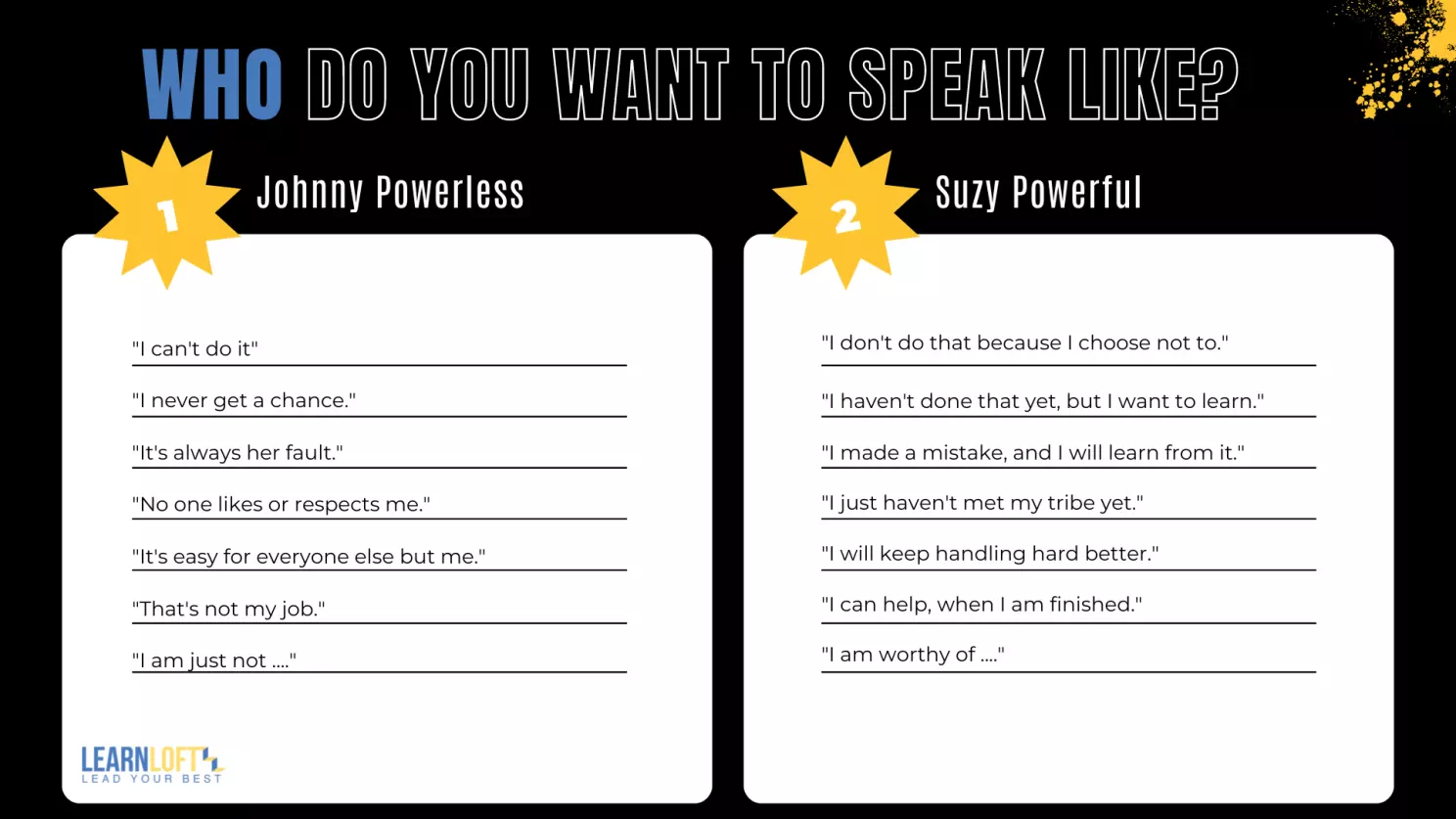Comments
- No comments found

Great leadership always comes down to actions. However, those activities are often a follow-up to spoken words or potent thoughts.
Here is the best part: there is one person whose words and thoughts you control, and that's yourself. In my work coaching and developing leaders and the countless hours spent playing golf with people at all different skill levels, the words people speak to themselves and the negative thoughts that they allow in their minds are abominable. Powerless words and negative thoughts crush one's ability to lead effectively or perform consistently.
Powerless words and negative thoughts crush your ability to lead effectively or perform consistently.
More than one personality type can lead successfully. Some great leaders are introverts, and some great leaders are extroverts. Some of the best leaders have been exceptional speakers, while others have had trouble speaking in front of people. However, some familiar sounds emerge regardless of one's leadership style.
Sounding like a powerful leader means communicating in a way that inspires and empowers yourself or others to realize their potential. To become a better version of oneself. To instill courage and belief that people are worthy and good enough for impact and success.
Sounding like a powerful leader means communicating in a way that inspires and empowers others to realize their potential.
However, words and language can have both a positive or negative impact. Yehuda Burg said, "words have energy and power with the ability to hurt, heal, hinder, harm, and humble." Truth is, words can be a fantastic tool or a dangerous weapon.
Words can be a fantastic tool or a dangerous weapon.
Each person is in a battle with the words we say to ourselves, whether we know it or not.
Certain words can be powerful or weak. They can transfer belief or create doubt. Take the example of Johnny Powerless and Suzy Powerful below: Whom would you prefer to speak like?

Johnny Powerless uses language like:
"I can't do it."
"I never get a chance."
"It's always her fault."
"No one likes or respects me."
"It's easy for everyone else but me."
"That's not my job."
"I am not good enough."
On the other hand, Suzy Powerful speaks to herself and others differently. She said things like:
"I don't do that because I choose not to."
"I haven't done that yet, but I want to learn."
"I made a mistake; I will learn from it."
"I will keep getting better at handling hard situations."
"I just haven't met my tribe yet."
"I can help when I am finished."
"I am worthy of success."
Both Johnny Powerless and Suzy Powerful's words expose an essential leadership principle:
The words you say to yourself are the most important words you say.
Taking responsibility for your words, thoughts, and actions is a critical component of being a successful leader.
Sounding like a leader often doesn't require massive changes, so start with some minor adjustments. Here are a few ideas:
Eliminate Extreme Globalizing Words - Extreme globalizing words like always, never, and every time eliminate hope and are rarely accurate. However, we use them out of habit, hurting our leadership.
Stop Saying Can't - Embrace the rule of "can't say can't." When leaders use the word can't it creates a victim mindset in themselves or others.
Reject Participating in Gossip - Gossip is tempting to engage in, but it's a surefire way to sound like a powerless leader. Speak about things you know are true and reject the temptation of reducing someone else to elevate yourself.
Reject the temptation of reducing someone else to elevate yourself
Something unique happens when you start to sound like a leader. Little by little, you will build confidence in yourself, and others will take notice. However, you won't be perfect, so give yourself some grace when you come up short.
The best part is you get an opportunity to use stronger and more powerful words tomorrow.
John is the CEO of LearnLoft, author of, F.M.L. Standing Out & Being a Leader and host of the 'Follow My Lead' Podcast. He writes or has been featured on Inc.com, LinkedIn Pulse, TrainingIndustry.com, eLearningIndustry.com, CNBC Money, and more. John completed his education at the University of Maryland College.
Leave your comments
Post comment as a guest